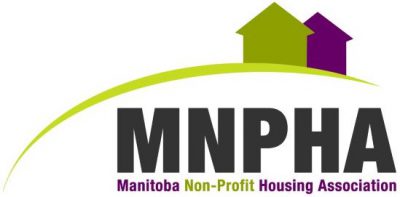WINNIPEG, MANITOBA–(Marketwire – April 11, 2012) – The Government of Canada and the Province of Manitoba are helping people who are working to build stronger futures for themselves in Winnipeg. Ms. Joyce Bateman, Member of Parliament for Winnipeg South Centre, on behalf of the Honourable Diane Finley, Minister of Human Resources and Skills Development, along with Rob Altemeyer, MLA for Wolseley, on behalf of the Honourable Kerri Irvin-Ross, Manitoba Minister of Housing and Community Development, today announced $127,968 for two projects in Winnipeg.
“Our government is giving a hand-up to Canadians with housing needs and helping break the cycle of homelessness and poverty,” said Ms. Bateman. “We are pleased to be working with the North End Women’s Centre and Red Road Lodge in their efforts to find local solutions to local problems. By working together, we are creating community projects and partnerships to improve and create services and facilities for homeless and at-risk individuals.”
“These projects demonstrate another coordinated effort between government and the community to address issues relating to homelessness in Winnipeg,” said Mr. Altemeyer. “We are pleased to join with our community partners in supporting adults, youth and children in need, while assisting them to achieve greater self-sufficiency and independence.”
“Betty Berg House is a second-stage housing facility for women in recovery from addictions that offers support services to increase opportunities for participating women to move towards self-sufficiency and to secure long-term, stable housing,” said Heather Leeman, Executive Director. “The North End Women’s Centre is pleased to partner with HRSDC’s Homelessness Partnering Strategy, which enables us to provide these much-needed support services to women who are dealing with issues of mental health, addictions, safety and homelessness.”
“The Red Road Lodge initiative has focused on reducing homelessness and the risk of eviction by stabilizing and supporting successful housing through our START and REACH programs. Additionally, our free Community Resource Centre provides creative alternative activities that nurture addiction recovery and mental health,” said Beverly Roberts, General Manager. “Since 2009, the federal and provincial governments have funded our life skills programming, which has assisted over 1 800 community residents with basic needs services, specific referrals and life skills training to help them move towards independence, self-sufficiency and wellness.”
The North End Women’s Centre will use $73,398 in HPS funding to operate Betty Berg House, a transitional housing facility, and to provide support services, such as counselling and life skills training, to women who are homeless or at risk of homelessness.
In addition, Red Road Lodge is receiving HPS funding of $54,570 for its Home for Recovery project, which will provide vulnerable people with life and employment skills training, social service referrals and help with basic needs such as shelter and food.
The Province of Manitoba will provide Neighbourhoods Alive! and Community Places Program funding of $51,600 to support programs at Red Road Lodge.
This news release is available in alternative formats upon request.
BACKGROUNDER
The Homelessness Partnering Strategy (HPS) is a unique community-based program aimed at preventing and reducing homelessness by providing direct support and funding to 61 designated communities across Canada. The HPS took effect April 1, 2007, with annual funding of $134.8 million for two years. In September 2008, the Government committed to investing more than $1.9 billion in housing and homelessness programs over five years, until March 2014. This includes a renewal of the HPS until March 2014.
As of April 9, 2012, a total of 1 815 approved projects totalling over $643 million were funded under the HPS to prevent and reduce homelessness in Canada.
The HPS provides structures and supports that help people who are homeless or at risk of homelessness achieve self-sufficiency and full participation in society. This model seeks to address homelessness by working in partnership with the provinces and territories, other federal departments, as well as with communities and the private and not-for-profit sectors.
The availability of safe, stable housing and related supports is an important element in addressing homelessness and helping individuals who are homeless achieve greater self-sufficiency and a better quality of life. The Government’s investments are creating jobs, stimulating local economies and improving the quality of life for many Canadians.
By working with all our partners, we will maximize results to make a lasting difference in the lives of vulnerable Canadians. The HPS provides the support that our community partners are seeking.
The HPS uses a housing-first approach, recognizing that the first step is to provide individuals with transitional and supportive housing.
For more information on the HPS and the seven funding streams, please visit www.hrsdc.gc.ca/homelessness.
Neighbourhoods Alive! is a long-term, community-based social and economic strategy to support and encourage community-driven revitalization efforts in neighbourhoods in Winnipeg and rural communities. The provincial government has supported Neighbourhoods Alive! programs in Thompson, Brandon, Flin Flon, The Pas, Selkirk, Dauphin, Portage la Prairie and designated communities throughout Winnipeg.
Community Places helps non-profit organizations to improve the quality of living within their communities. The program provides funding support for the upgrading, construction or acquisition of sustainable buildings and other facilities that provide lasting, long-term benefits to community residents.
In Winnipeg, housing programs are funded by the Canada Mortgage and Housing Corporation, Manitoba Housing, and the City of Winnipeg. Homelessness programming is funded through the Government of Canada’s Homelessness Partnering Strategy. The three levels of government-Canada, Manitoba and the City of Winnipeg-work collaboratively in a partnership called the Winnipeg Housing and Homelessness Initiative (WHHI).
From 2000 to 2012, the WHHI partners committed almost $185 million to repair, rehabilitate or construct over 8 400 housing units, assisting those who are homeless or at risk of homelessness.
Contact Information
Director of Communications
Office of Minister Finley
819-994-2482
Media Relations Office
Human Resources and Skills Development Canada
819-994-5559
Joe Czech
Manitoba Housing
Communication Services Manitoba
204-945-6778
[email protected]

Recent Comments